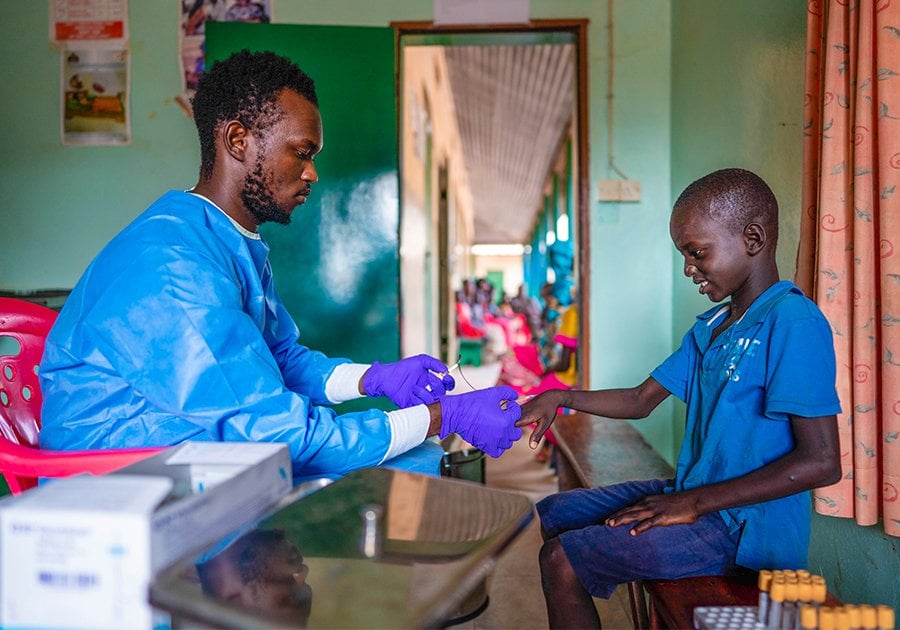Data Generated by Researchers at MRCG at the LSHTM Directly Impact WHO Vaccine Policy
6 October 2023 London School of Hygiene & Tropical Medicine London School of Hygiene & Tropical Medicine https://lshtm.ac.uk/themes/custom/lshtm/images/lshtm-logo-black.png
At its biannual meeting held on 25-29 September 2023, the WHO issued the recommendation that all countries in the African meningitis belt, an area spanning from The Gambia and Senegal to Ethiopia, should introduce the meningitis Men5CV vaccine into their routine immunization programmes. The vaccine which targets the serogroups A, C, Y, W, and X was developed by the Serum Institute of India and global health organisation PATH with the goal of eliminating Meningitis in sub-Saharan Africa.
According to the WHO, an estimated 250,000 deaths were caused by meningitis in 2019. With proper vaccination, meningitis is largely preventable but progress in fighting the disease has been lagging. This recommendation, based upon the advice from the Strategic Advisory Group of Experts on Immunization (SAGE), is thus a significant step forward in achieving the WHO Defeating Meningitis by 2030 Global Roadmap.
A key trial of the Men5CV vaccine was conducted in June 2021 with 1,800 participants aged 2 to 29 years in Mali and The Gambia. The study was led by a group of researchers at the Vaccines and Immunity Theme at MRC Unit The Gambia at the London School of Hygiene & Tropical Medicine and researchers from the Centre for Vaccine Development, Bamako in Mali. The results were published in the New England Journal of Medicine.
Looking back at the trials their team conducted on the vaccine in The Gambia, Prof Ed Clarke co-author of the study from the Vaccines and Immunity Theme at MRC Unit The Gambia at LSHTM said ‘It’s great to see the important data generated in this trial impacting directly on WHO vaccine policy at the highest level. We hope the introduction of the vaccine into routine childhood immunization schedules, as well as delivered through large scale campaigns, will ultimately help prevent the unacceptable ongoing burden of meningitis in the African meningitis belt’.
In response to the WHO Men5CV vaccine recommendation, Dr. Ama Umesi co-author from MRC Unit The Gambia at LSHTM expressed “The WHO recommendation of Men5CV into the EPI schedule is an exciting and fulfilling news for the team. As a researcher working with amazing team members in one of the meningitis belt region countries, having a vaccine licensed after conducting this clinical trial shows that there is indeed hope in defeating meningitis.”
Vaccines for meningitis have often been expensive and out of reach for poorer countries. Dr. Umesi continued “the significance of having a relevant affordable pentavalent vaccine for the meningitis belt region is enormous. This will indeed save lives and give hope to future generations as we fight against meningitis. With this we hope no one will be left behind as we catch them young via EPI vaccination. As an African researcher, I am proud to be part of the team”.
LSHTM's short courses provide opportunities to study specialised topics across a broad range of public and global health fields. From AMR to vaccines, travel medicine to clinical trials, and modelling to malaria, refresh your skills and join one of our short courses today.